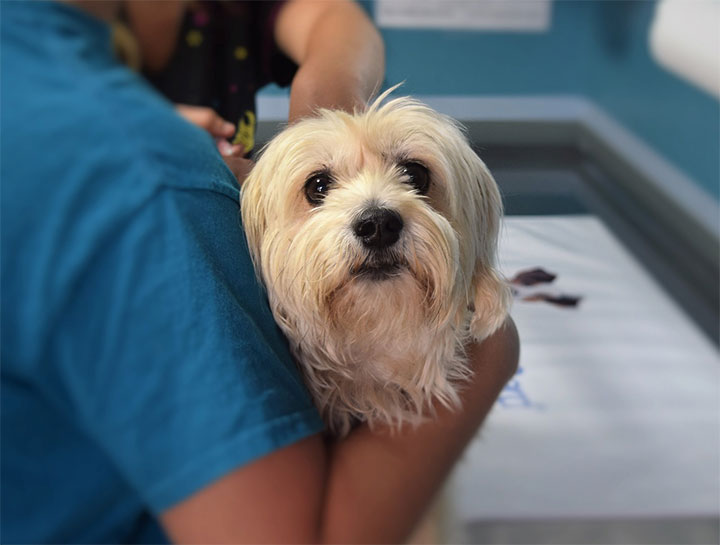Emergency Pet Care
Find treatment fast.
We are equipped to see certain veterinary emergencies during our regular hours. However, if your pet experiences an after-hours emergency, they require an overnight observation, or we determine they require a level of specialty care that can be better provided elsewhere, we’ll refer you to the closest specialty care or emergency animal hospital.
In case of an after-hours emergency, please contact:
Northwest PA Pet Emergency Center
429 W 38th St, Erie, PA 16508
P: (814) 866-5920
Orchard Park Veterinary Medical Center
3930 N Buffalo St, Orchard Park, NY 14127
P: (716) 662-6660
Pittsburgh Veterinary Specialty and Emergency Center - North Hills
807 Camp Horne Road, Pittsburgh, PA 15237
P: (412) 366-3400
For immediate assistance, call us at (814) 757-5440.
There are several emergency situations that are common. The following recommendations could be valuable for you to know.
In any emergency situation, keep the pet as quiet as possible and try to conserve heat by covering it with bedding or newspapers. If necessary, apply the A, B, C of first aid:
- A Airway
- B Breathing
- C Cardiac function
Airway – Anything that obstructs the airway prevents oxygen entering the lungs. Do your best to clear the mouth and throat of any obstruction such as vomitus, saliva or foreign bodies such as grass, sticks or balls. Be careful; your pet may bite you in panic.
Breathing – If your dog is unconscious and does not appear to be breathing, try gently pumping the chest with the palm of your hand, at the same time feeling just behind the elbow to detect a heart beat or pulse. Close the muzzle with your hand and blow into the nostrils. This is best accomplished by covering the pet’s nose with your mouth. Be careful. Injured pets may bite you out of fear. If you are unsure about the health or vaccination status of the injured pet, avoid contact with bodily fluids and blood.
Cardiac function – If you are unable to detect a heartbeat or pulse or if appears weak and slow, try pressing on the chest with your palm. Five (5) chest compressions followed by one to two (1-2) deep breaths is a simple form of animal cardio-pulmonary resuscitation (CPR).
Specific first aid
Blood loss
Once you have checked A, B, C above and if the bleeding is severe, try to stop it. If bleeding is from a cut pad or paw, apply a dressing using a piece of bandage or clothing. If the bleeding persists and is soaking through the bandage, this is a medical emergency. Most bleeding wounds will require medical or surgical treatment. If the wounds are treated within four (4) hours, they can often be sutured. Deep cuts treated after four hours have increased risk of infection and complication.
Burns and scalds
Cool the burned area with cold water as quickly as possible. Cover the burned area with damp towels. If the injury is due to a caustic substance, rinse with cold water for fifteen (15) minutes and contact your veterinarian.
Eye injuries
Injuries to the eye are always very painful. If a foreign body (grass awn, stick, etc.) can be seen, it may be possible to remove it by gently rinsing the eye with eye wash or contact saline solution. Seek veterinary advice as soon as possible.
Seizures
Seizures can be due to many causes. These range from eclampsia (milk fever) to epilepsy. If due to eclampsia, remove the puppies from the mother immediately. All dogs that are seizuring or have had a recent seizure should be kept in a dark, quiet, confined area until medical help can be sought. Contact your veterinarian immediately.
Heat stroke
This most commonly occurs in hot weather when dogs are left in cars without adequate ventilation. Body temperature rises dramatically. Clinical signs are excessive panting and obvious distress quickly followed by coma and death. Reduce the pet’s body temperature as quickly as possible using cool water and transport the dog to the veterinarian while it is still wet. Keep the car windows open. Evaporation will help reduce body temperature. Avoid using ice or ice water because this may drop the temperature too quickly and cause additional complications.

.png)